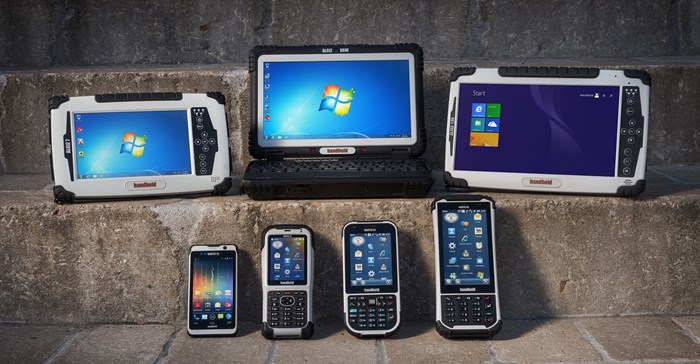
Top stories




Marketing & MediaWarner Bros. was “nice to have” but not at any price, says Netflix
Karabo Ledwaba 1 day


More news

Logistics & Transport
Maersk reroutes sailings around Africa amid Red Sea constraints

















Tough and durable mobile computers are gaining in popularity across many industries but especially in areas like mining, geomatics, logistics, forestry, public transportation, utilities, construction, maintenance, military, and security. Almost indestructible, these computers can withstand water, vibration, shocks, dust and sand, and extreme temperatures. With advanced software and efficient data collection, entirely new possibilities are emerging for field work in difficult environments.
Security and public safety, including fire and rescue, have seen maybe the greatest transformation thanks to these new mobile computing possibilities. Police officers have been using mobile devices for so long that the technology has become an integral part of their everyday job (laptops in patrol cars are ubiquitous).
What has happened in the last few years is that connectivity has improved greatly, devices have become smaller, tougher and more affordable, and the accompanying software has become more robust - all fuelling the boom in user uptake in the security and rescue industries with its high proportion of staff field time and high demand for durable tools. Looking at mobile officers, for instance, one can easily understand that those on foot patrols, horses, motorcycles, etc. won't mind sacrificing some performance for increased durability and portability.
On an average, 50 people drown every year in near-shore accidents along the coast of Lake Michigan. Storms create dangerous underwater currents that surprise swimmers and can sometimes be fatal. Trying to predict the next storms, researchers at the Great Lakes Research Center at Michigan Technological University has started using rugged mobile technology to track and predict dangerous currents.
Underwater data is gathered on the beach and in the water, using a 17-foot open boat, down-looking sonar and a GPS system. Every second, data is collected on parameters like depth flow and temperature through rugged tablet computers that run software mapping the lake bottom in real time. As the data flows into the tablet computer, it is converted into a GIS map that the researchers can study as they go along. Needless to say, devices need to be waterproof to perform in these conditions, with frequent rain and high waves. With rip currents more predictable, this work could be a real life-saver in the true sense of the word.

A majority of Sweden's 21 county councils - responsible for healthcare and medical care - have implemented a system called Paratus. Supplied by the Swedish defence and security group SAAB, Paratus is a module based information system for prehospital healthcare and fire services.
Looking at one specific region as an example, the southern Skåne city council has 1.3 million inhabitants with nine hospitals, 85 ambulances and 800 individual users of the Paratus Mobile System.
There is at least one Handheld Algiz 10X rugged mobile computer installed in every ambulance, capable of un-docking and use outside the vehicle. The computer handles navigation to the accident scene and assists in status reporting, including the all-important classification of the patient's condition. The emergency rooms have access to the patient's condition in real time and can follow which medication is given even before the ambulance arrives. They can also see exactly where the ambulance is located at any given time.
After evaluation, this advanced mobile IT support has been found to significantly increase the emergency and hospital care quality. The ambulance journals are deemed so valuable that they are used by doctors throughout the entire treatment process. The improved and extended patient care history is filed and used for overall analyses, evaluations and decision support.
Only three years ago, 10-inch mobile devices were out of the question in the prehospital healthcare and emergency rescue industry - fixed mounted computers was the only accepted solution. Today it is the opposite. Fixed mounted computers are history. Mobile devices and tablets is the only choice.
Who has managed to miss the hugely successful CSI television series? It might come as a surprise that even forensic analysts can improve their success rates with modern mobile computing solutions. Crimes are often committed in the field and forensic analysts often encounter extreme temperatures, rain, wind and dust that may compromise evidence.
These professionals increasingly use rugged mobile technology to collect evidence in harsh environments. The mobile technology they use in their investigations has to be able to hold up to tough conditions, and it also needs to be accurate, efficient, durable, portable and easy to use. Most suppliers to forensic departments do not even offer non-rugged solutions to their clients anymore since they are so unreliable.
These are just some examples of how modern advanced mobile computer solutions have contributed to sectors that are extremely important and valuable to individuals and society as a whole. I believe that we have only seen the beginning of a major improvement in the way that these commendable field workers help save lives and keep us safe - with the help of technology.